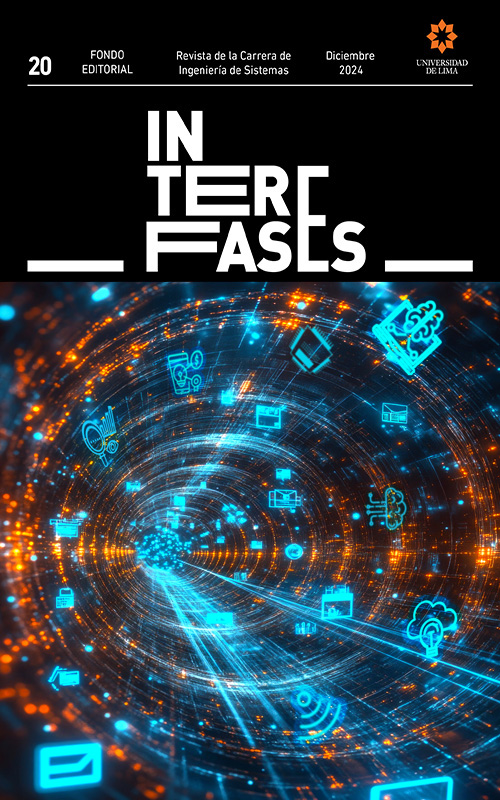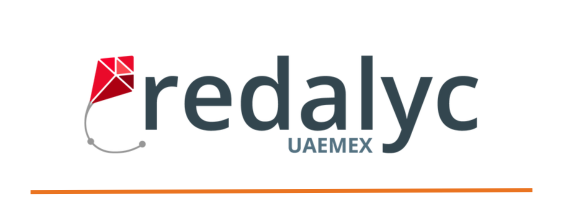Towards a Regulation on Artificial Intelligence (AI): Key Considerations and International Regulations
DOI:
https://doi.org/10.26439/interfases2024.n020.7178Keywords:
artificial, intelligence, normative, regulationsAbstract
Artificial Intelligence (AI) is a disruptive technology that has a significant impact on various aspects of society and the economy. Its rapid development has generated an urgent need to define and establish regulations that address the ethical, social and economic challenges that come with its adoption. The lack of adequate regulation carries the risk of discrimination and bias in AI-based decision-making, which could undermine public trust in this technology. This article aims to identify the key elements necessary to serve as a basis for the development of effective AI regulations. International regulations from the European Union, the United States, as well as initiatives from international organizations such as UNESCO, the OECD and the Economic Commission for Latin America (ECLAC) with its ILIA AI Strategy Index are taken into account. In addition, the specific case of Costa Rica is presented as an example of the formulation of an Artificial Intelligence Strategy. Guidelines are proposed for coherent and effective AI regulations that promote cooperation and harmonization of regulations. These guidelines are offered as a guide to regulate AI tools and applications, as well as to adopt and use them responsibly for the benefit of society supported by cooperation, consensus and agreements between organizations and countries.
Downloads
References
Baiocchi, A. & Leicht, A. (2023, 12 de abril). Inteligencia artificial en Costa Rica: justicia, ética e inclusión para no dejar a nadie atrás. Unesco. https://www.unesco.org/es/articles/inteligencia-artificial-en-costa-rica-justicia-etica-e-inclusion-parano-dejar-nadie-atras
Burt, A. (2021, 30 de abril). New AI regulations are coming. Is your organization ready? Harvard Business Review. https://hbr.org/2021/04/new-ai-regulations-are-coming-is-your-organization-ready
Cain, L. & Webster, C. (2022, 2-7 noviembre). The origin, rationale, and impacts of regulations on robots and AI in tourism and hospitality [Presentación de escrito]. International Conference on Innovation, Documentation and Education, INNODOCT/22, Valencia, 111–118. https://doi.org/10.4995/inn2022.2022.15978
Comisión Económica para América Latina y el Caribe (2023, 11 de agosto). La inteligencia artificial puede contribuir a la transformación de los modelos de desarrollo en América Latina y el Caribe para hacerlos más productivos, inclusivos y sostenibles. https://www.cepal.org/es/comunicados/la-inteligencia-artificial-puede-contribuir-latransformacion-modelos-desarrollo-america#:~:text=La%20inteligencia%20artificial%20(IA)%20puede,se%20requiere%20reflexi%C3%B3n%2C%20visi%C3%B3n%20estrat%C3%A9gica%2C
Comisión Económica para América Latina y el Caribe (2024, 24 de setiembre). Lanzamiento de la segunda versión del “Índice Latinoamericano de Inteligencia Artificial (ILIA)”. https://www.cepal.org/es/eventos/lanzamiento-la-segunda-version-indicelatinoamericano-inteligencia-artificial-ilia
Chatterjee, S. (2020). Impact of AI regulation on intention to use robots: From citizens and government perspective. International Journal of Intelligent Unmanned Systems, 8(2), pp. 97-114.
Cuéllar, M. F., Larsen, B., Lee, Y. S., & Webb, M. (2024). Does information about AI regulation change manager evaluation of ethical concerns and intent to adopt AI? Journal of Law, Economics, and Organization, 40(1), 34-75. https://doi.org/10.1093/jleo/ewac0047
Dirección de Educación Técnica y Capacidades Emprendedoras. (2022). Programa de estudio Inteligencia Artificial. Minsterio de Educación Pública de Costa Rica. https://www.mep.go.cr/sites/default/files/2024-03/inteligenciaartificial12.pdf
Dirección de Prensa y Relaciones Públicas. (2022b, 24 de noviembre). Convenio entre MEP e Intel Costa Rica habilitará la especialidad de inteligencia artificial en colegios técnico-profesionales el otro año. Ministerio de Educación Pública de Costa Rica. https://www.mep.go.cr/noticias/convenio-mep-e-intel-costarica-habilitara-especialidad-inteligencia-artificial-colegios-te
Dumouchel, P. (2023). AI and regulations. AI, 4(4), 1023-1035. https://doi.org/10.3390/ai4040052
Ferreira Beni, P., Barone, D. A., & De Ortúzar, M. (2023, 13-17 noviembre). Cuestiones éticas sobre la Inteligencia Artificial en la educación [Ponencia]. Semana de la Filosofía, La Plata, Argentina. https://www.memoria.fahce.unlp.edu.ar/trab_eventos/ev.17321/ev.17321.pdf
Franks, E., Lee, B., & Xu, H. (2024). Report: China’s new AI regulations. Global Privacy Law Review, 5(1), 43-49. https://doi.org/10.54648/gplr2024007
Galdón Clavell, G. & Lorente Martínez, A. (2022). Hacia un prospecto en el marco regulatorio laboral en Argentina. Análisis tecnológico, marco regulatorio y buenas prácticas. CIPPEC; Eticas; BID Lab Buenos Aires. https://publications.iadb.org/es/hacia-un-prospectoen-el-marco-regulatorio-laboral-en-argentina-analisis-tecnologico-marco
Gstrein, O. J. (2022). European AI regulation: Brussels effect versus human dignity? Zeitschrift Für Europarechtliche Studien, 25(4), 755-772. https://doi.org/10.5771/1435-439X-2022-4-755
Katulić, T. (2020). Towards the trustworthy AI: Insights from the regulations on data protection and information security. Media Research: Croatian Journal for Journalism and the Media, 26(2), 9-28.
Khairo, F., & Busroh, F. F. (2023). Harnessing the power of AI in shaping sdministrative law regulations. International Journal of Science and Society, 5(4), 617-625 https://doi.org/10.54783/ijsoc.v5i4.826
Konttila J. & Väyrynen, K. (2022). Challenges of current regulation of AI-based healthcare technology (AIHT) and potential consequences of the European AI Act proposal. En Fischer, L. H., Nørbjerg, J., & Pries-Heje, J. (Eds.) Proceedings of the 13th Scandinavian Conference on Information Systems. Association for Information Systems (AIS). Proceedings / Information Systems Research In Scandinavia (IRIS) https://aisel.aisnet.org/scis2022/7
Martínez, M. V. (2024). De qué hablamos, cuando hablamos de inteligencia artificial. Oficina Regional de Unesco en Montevideo; Consejo Latinoamericano de Ciencias Sociales. https://unesdoc.unesco.org/ark:/48223/pf0000391087
Ministerio de Educación Pública de Costa Rica (2008). El centro educativo de calidad como eje de la educación costarricense. https://ruie.ucr.ac.cr/catalogo/Record/INIE-UIR-CD-1909?sid=859603
Ministerio de Ciencia, Innovación, Tecnología y Telecomunicaciones (2023a, 20 de febrero). MICITT e Intel unen esfuerzos para capacitar a estudiantes fuera de GAM sobre inteligencia artificial. https://www.micitt.go.cr/el-sector-informa/micitt-e-intelunen-esfuerzos-para-capacitar-estudiantes-fuera-de-gam-sobre
Ministerio de Ciencia, Innovación, Tecnología y Telecomunicaciones (2023b). MICITT inicia formulación de estrategia de inteligencia artificial. https://www.micitt.go.cr/el-sector-informa/micitt-inicia-formulacion-de-estrategia-de-inteligencia-artificial
Ministerio de Ciencia, Innovación, Tecnología y Telecomunicaciones (2023c, 9 de agosto). PYMEs y PYMPAs aplicarán herramientas de Inteligencia Artificial para mejorar competitividad de sus negocios gracias a Plan Piloto. https://www.micitt.go.cr/el-sector-informa/pymes-y-pympas-aplicaran-herramientas-de-inteligencia-artificial-paramejorar
Ministerio de Ciencia, Innovación, Tecnología y Telecomunicaciones (2024, 8 de marzo). Intel entrenará a 1000 mujeres en inteligencia artificial en América Latina. https://www.micitt.go.cr/el-sector-informa/intel-entrenara-1000-mujeres-en-inteligencia-artificial-en-america-latina
Nitzberg, M., & Zysman, J. (2022). Algorithms, data, and platforms: the diverse challenges of governing AI. Journal of European Public Policy, 29(11), 1753-1778. https://doi.org/10.1080/13501763.2022.2096668
Novelli, C., Casolari, F., Rotolo, A., Taddeo, M. & Floridi, L. (2024). Taking AI risks seriously: a new assessment model for the AI Act. AI & Society, 39, 2493-2497. https://doi.org/10.1007/s00146-023-01723-z
OECD. (2018). AI: Intelligent machines, smart policies: Conference summary. OECD Digital Economy Papers, 270, 1–33. https://doi.org/10.1787/f1a650d9-en
Picado, N. (2023, 16 de mayo). Directores de colegios técnicos analizan oferta técnica del MEP y el futuro de la especialidad. Ministerio de Educación Pública de Costa Rica. https://www.mep.go.cr/noticias/directores-colegios-tecnicos-analizan-oferta-tecnica-mep-futuro-especialidad
Pichai, S. (2018, 7 de junio). AI at Google: our principles. The Keyboard. https://blog.google/technology/ai/ai-principles/
Pownall, C. (2019, 2 de julio). Understanding the reputational risks of AI. Charlie Pownall. Reputation Management and Communications. https://charliepownall.com/?s=Understanding+the+reputational+risks+of+AI
Revista Summa. (2024, 1 de abril). Autoridades sostienen diálogo clave con EE.UU. para crear Centro de Excelencia en Costa Rica. https://revistasumma.com/autoridades-sostienen-dialogo-clave-con-ee-uu-para-crear-centro-deexcelencia-en-costa-rica/
Schuett, J. (2023). Defining the scope of AI regulations. Law, Innovation and Technology, 15(1), 60-82. https://doi.org/10.1080/17579961.2023.2184135
Sheehan, M. (2023). China’s AI Regulations and How They Get Made. Carnegie Endowment for International Peace. https://carnegieendowment.org/research/2023/07/chinas-ai-regulations-and-how-they-get-made?lang=en
Soto Arriaza, Á., & Durán Rojas, R. (2024). Índice latinoamericano de inteligencia artificial 2023. Centro Nacional de Inteligencia Artificial. https://centrodepensamientodigital.org/wp-content/uploads/2024/03/1.-Indice-Latinoamerciano-de-IA-ILIA-2023.pdf
Stahl, B. C., Rodrigues, R., Santiago, N., & Macnish, K. (2022). A European agency for artificial intelligence: Protecting fundamental rights and ethical values. Computer Law and Security Review, 45, 105661. https://doi.org/10.1016/j.clsr.2022.105661
Tallberg, J., Lundgren, M., & Geith, J. (2024). AI regulation in the European Union: examining non-state actor preferences. Business and Politics, 26(2), 218-239, https://doi.org/10.1017/bap.2023.36
Truby, J., Brown, R., & Dahdal, A. (2020). Banking on AI: mandating a proactive approach to AI regulation in the financial sector. Law and Financial Markets Review, 14(2), 110-120. https://doi.org/10.1080/17521440.2020.1760454
Unesco (2024). Diálogo político sobre la gobernanza de la IA. https://www.unesco.org/es/articles/dialogo-politico-sobre-la-gobernanza-de-la-ia
Downloads
Published
Issue
Section
License
Authors who publish with this journal agree to the following terms:
Authors retain copyright and grant the journal right of first publication with the work simultaneously licensed under an Attribution 4.0 International (CC BY 4.0) License. that allows others to share the work with an acknowledgement of the work's authorship and initial publication in this journal.
Authors are able to enter into separate, additional contractual arrangements for the non-exclusive distribution of the journal's published version of the work (e.g., post it to an institutional repository or publish it in a book), with an acknowledgement of its initial publication in this journal.
Authors are permitted and encouraged to post their work online (e.g., in institutional repositories or on their website) prior to and during the submission process, as it can lead to productive exchanges, as well as earlier and greater citation of published work (See The Effect of Open Access).
Last updated 03/05/21






